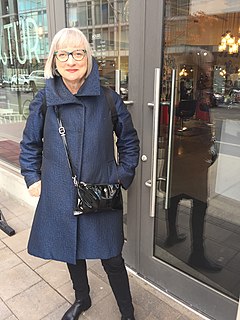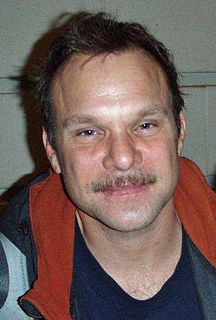A Quote by Kim Brooks
Related Quotes
I did go to an MFA program, at Bowling Green State University in Ohio. For me, it worked perfectly. It was a small program. They only take five fiction writers a year, and they fund all of us - you don't go into debt to get an MFA. It's not like getting an MBA - you're not going to buy yourself out.
I wrote Baghdad Central right after translating a great work by Ibrahim al-Koni, who is sort of a master of Arab fiction. In conversations with him I realized that translations have been my MFA program. If I have learned how to write fiction it's by working with great writers and getting them to explain their craft to me so that I can do it in English. That's how I've figured it out.
My god, people are selling their work and people are reading it! The horror! That MFA programs have to advertise that they'll let you write YA or fantasy or what-have-you is just absurd, but we do, because the presumption is that they're closed to that sort of thing. You're offering an MFA in creative writing? Teach people how to write well, worry about that part, let the writers come up with the stories.
What an invaluable handbook! Lori A. May has done her research, knows her stuff, and, whats best, lets the programs speak for themselves through her extensive interviews. Theres a chorus of quotes from faculty, students, and graduates in The Low-Residency MFA Handbook. Anyone making the decision to apply for an MFA should consult this wise guide. Mays clarity and authority make it a gold standard.
As you see, I bear some resentment and some scars from the years of anti-genre bigotry. My own fiction, which moves freely around among realism, magical realism, science fiction, fantasy of various kinds, historical fiction, young adult fiction, parable, and other subgenres, to the point where much of it is ungenrifiable, all got shoved into the Sci Fi wastebasket or labeled as kiddilit - subliterature.
Comedy is like fictional charm. It's the charm of fiction. Or the charisma of fiction. When you meet somebody who's immediately charismatic, you're attracted to that person. And in fiction it's got to come out in either one of two ways: in the prose itself, and you're hooked immediately because you never want to leave such a colorful and penetrating world. Or, it's simply being a funny writer.






































